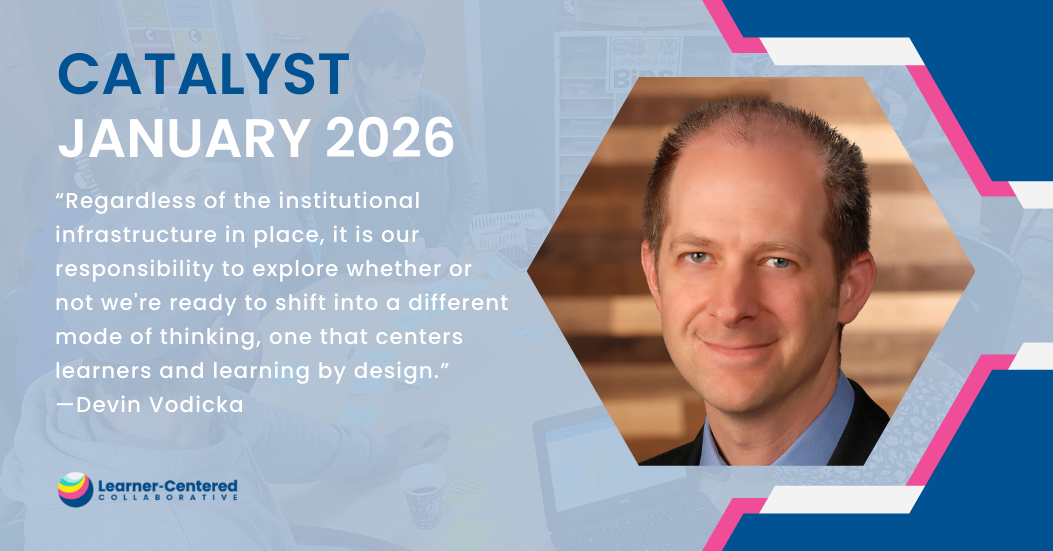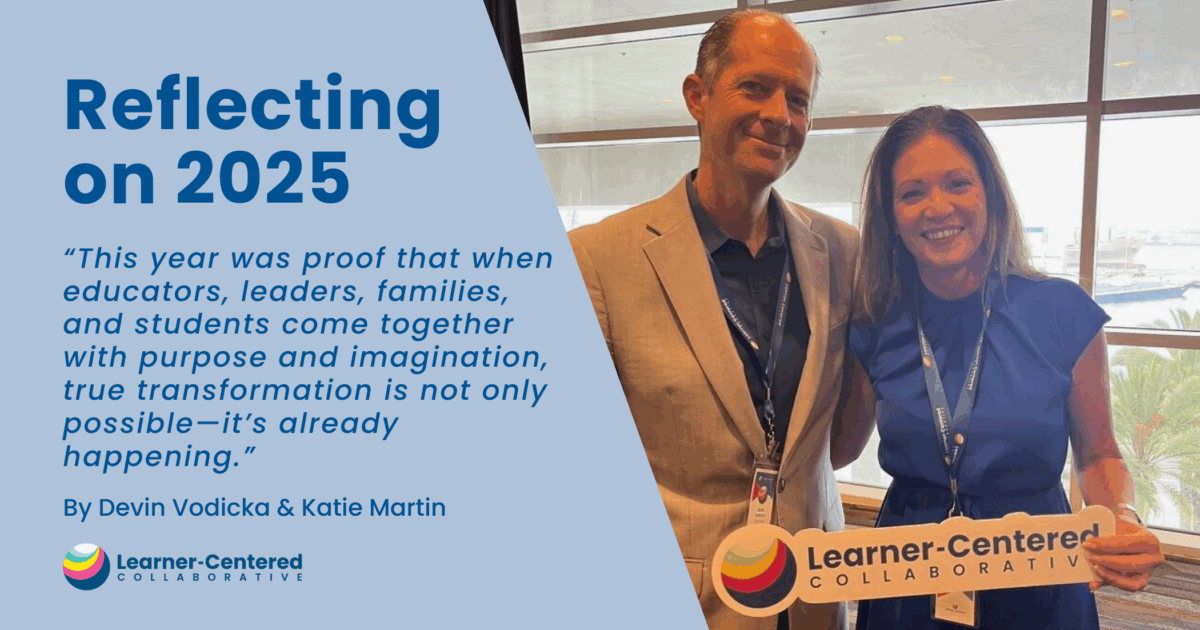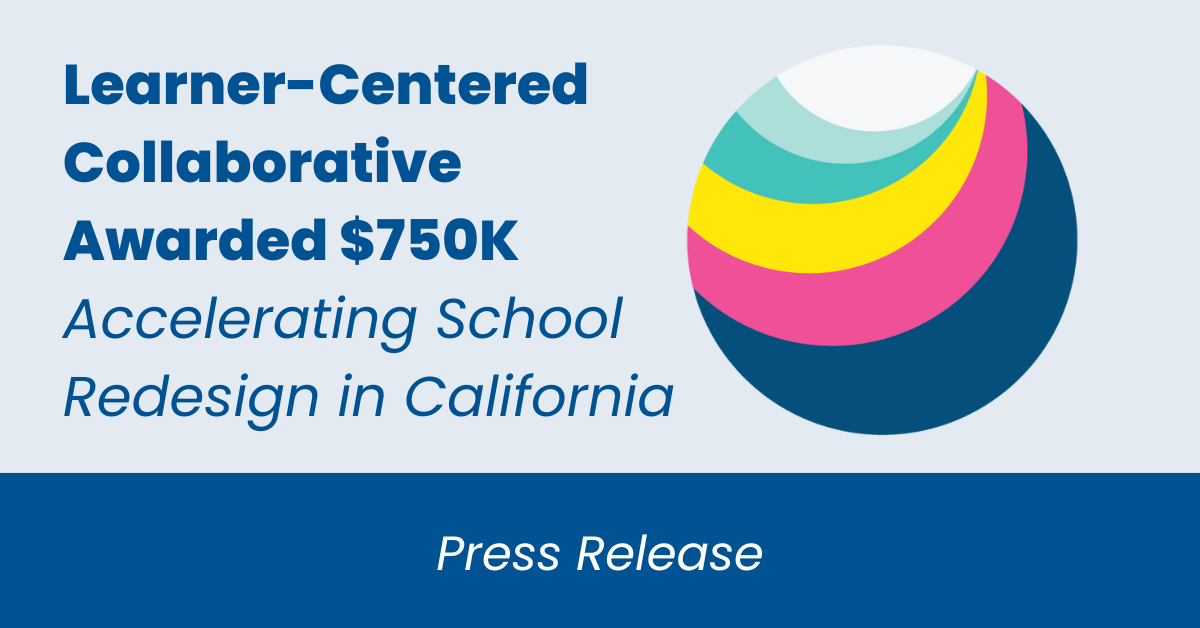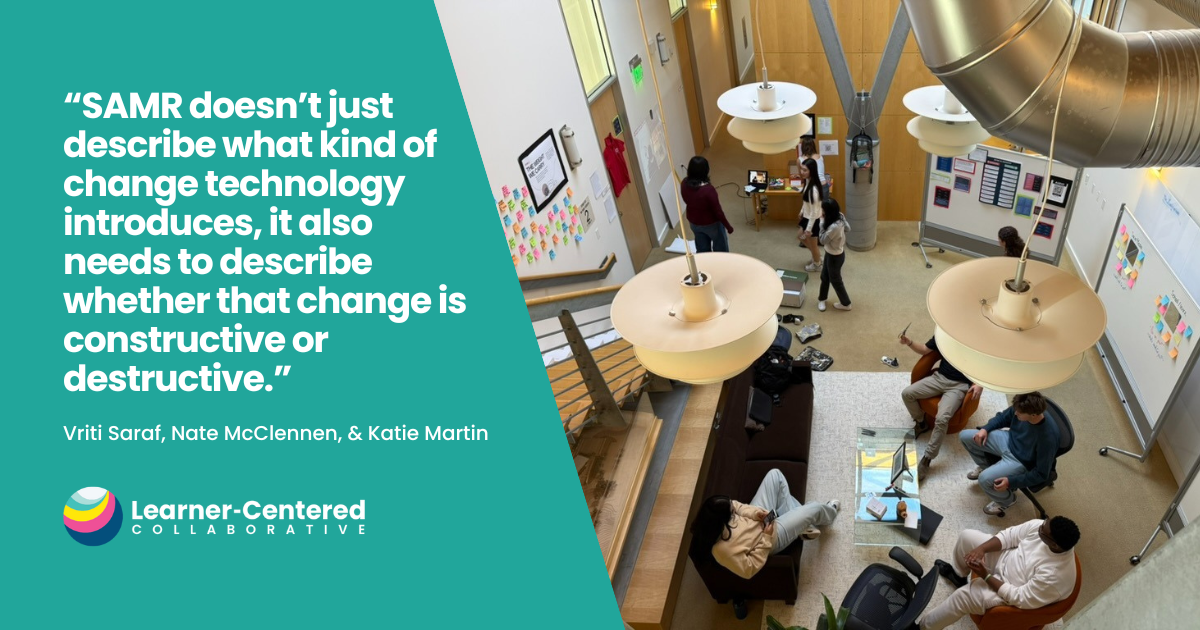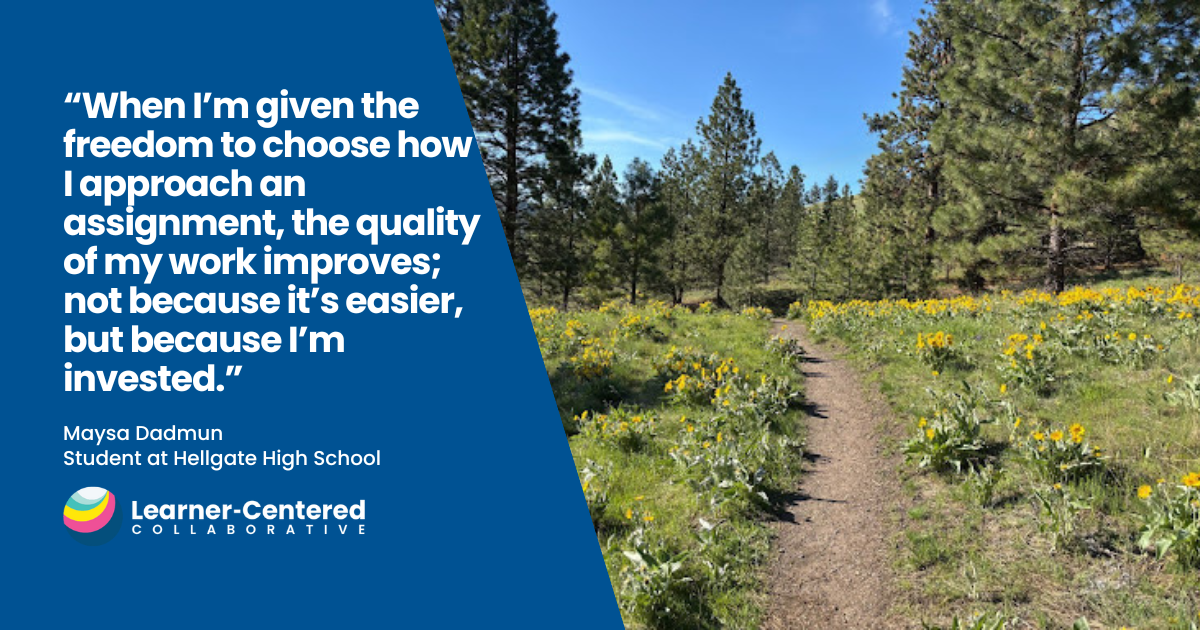A Learner-Centered Ecosystem
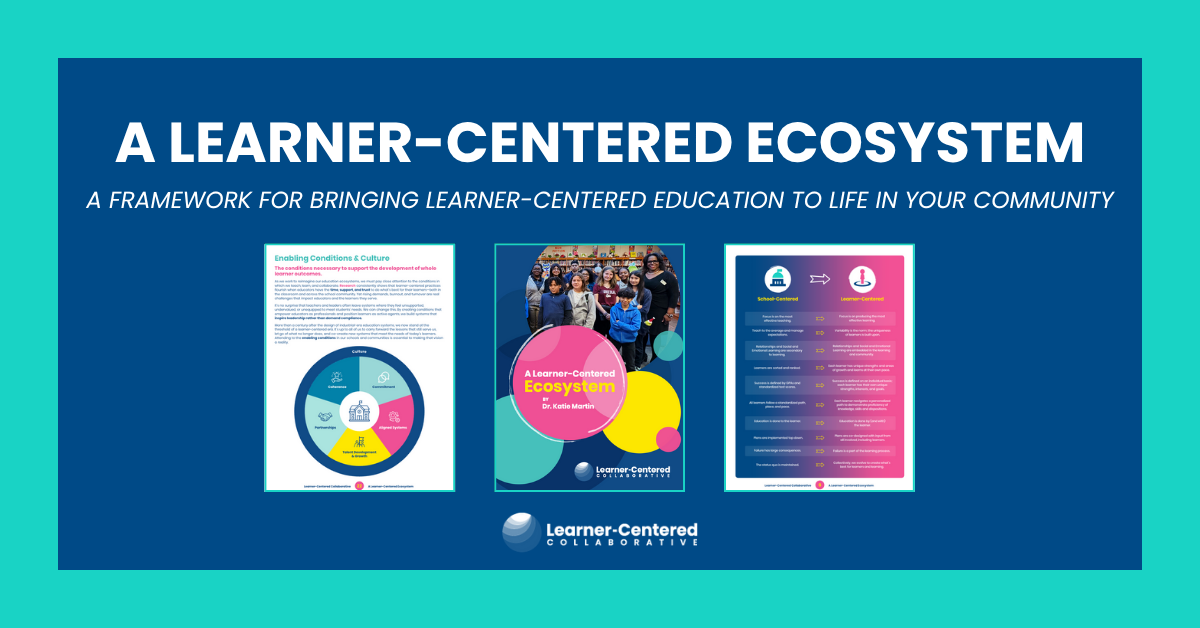
It’s time for a shift from the school-centered education system—where efficiency, standardization, compliance, ranking, sorting, and task completion are top priorities—to a learner-centered paradigm, where we focus on supporting each learner to know who they are, thrive in community, and actively engaged in the world as their best selves.
“A Learner-Centered Ecosystem” dives deep into how educators can bring a learner-centered approach to life through 4 key elements:
- Whole-Learner Outcomes: The knowledge, skills, and mindsets critical for learners to thrive in life, work, and citizenship
- Learning Model: Aligning educator mindsets, learning community design, and personalized, competency-based, authentic learning experiences to cultivate learner-centered ecosystems and support professional learning, evaluation, curriculum, and resource allocation.
- School Design: School structures are intentionally designed to support learner-centered practices.
- Enabling Conditions and Culture: The conditions necessary to support the development of whole learner outcomes.
This paper includes descriptions of each element and concrete examples from schools and districts across the country that are rethinking traditional structures and implementing learner-centered practices that have profound impacts on learners and learning.
Please complete the form below to access the resource.
